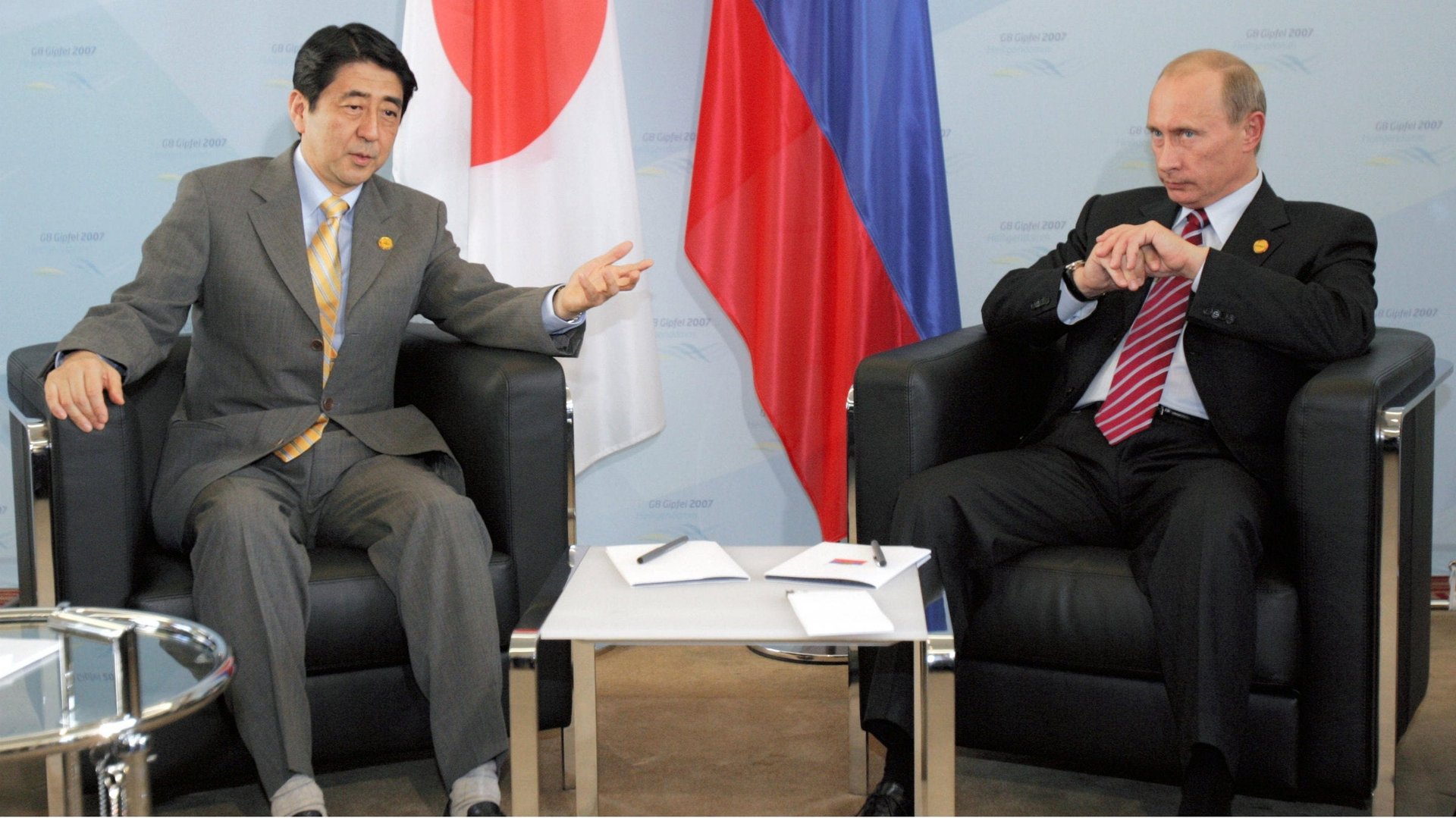Putin and Abe play ‘Let’s Make a Deal’ on natural gas
Japanese Prime Minister Shinzo Abe is in Russia today for a sit-down with his counterpart, Vladimir Putin. Near the top of the agenda: Japan’s insatiable appetite for natural gas, which Russia has in abundance. Lurking in the background is China, which has a complicated history with both nations, and an intensifying need for natural gas imports of its own.


Japanese Prime Minister Shinzo Abe is in Russia today for a sit-down with his counterpart, Vladimir Putin. Near the top of the agenda: Japan’s insatiable appetite for natural gas, which Russia has in abundance. Lurking in the background is China, which has a complicated history with both nations, and an intensifying need for natural gas imports of its own.
Japan is the world’s biggest importer of natural gas, and its needs have only grown since the nuclear crisis at Fukushima led to the shutdown of 48 of the nation’s 50 commercial nuclear reactors. Even if some of those power plants resume operations later this year as proposed, Tokyo is under pressure to find alternative sources of energy to replace nuclear power, which generated around 30% of Japan’s electricity before the tsunami.
Japan already has joint natural gas projects with Russia on Sakhalin Island to the north and in the Russian Far East, and is keen to expand such projects. Last month Japan’s Marubeni Corp signed a framework agreement with Russia’s oil giant Rosneft to build a liquefied natural gas plant in the Russian Far East. Meanwhile, Russian gas export monopoly Gazprom announced talks with Japan about a project to build a new plant in the Russian city of Vladivostok.
Increased Japanese demand couldn’t come at a better time for Russia. Huge supplies of shale gas from the US have reduced demand for Russian gas exports, putting pressure on companies like Gazprom to find new customers.
The heightened tensions between China and Japan over the Senkaku/Diaoyu islands have provided yet another rationale for closer cooperation between Japan and Russia. Fyodor Kukyanov, the editor of foreign policy magazine Russia in Global Affairs, told Bloomberg that “relations between Japan and Russia are dominated by the China factor. Both countries are trying to balance China’s growth as the most important country in the region and this is leading to a thaw.”
Russia is, of course, also cultivating closer energy ties with China. A long awaited deal between Gazprom and China National Petroleum Corporation is almost complete, which would allow for the supply of at least 30 billion cubic metres of gas to China over 30 years from 2018.
Competition between China and Japan over who gets what from Russia is likely only to intensify. Japanese imports of liquefied natural gas rose over 11% in 2012 to 109 billion cubic metres—more than 37% of global demand, which as a whole fell by 1.9%. The US Energy Information Administration projects that natural gas demand in China, on the other hand, will more than triple by 2035, to 311.5 billion cubic meters.
The talks between Abe and Putin will not be without points of friction. Russia and Japan have a long-standing dispute over four islands that were seized by the Soviet Union at the end of the Second World War; like the Senkaku/Diaoyu islands, they are thought to have offshore reserves of oil and gas. With so many disputed borders and competing needs for energy among the great powers of East Asia, there is clearly much bargaining to be done.